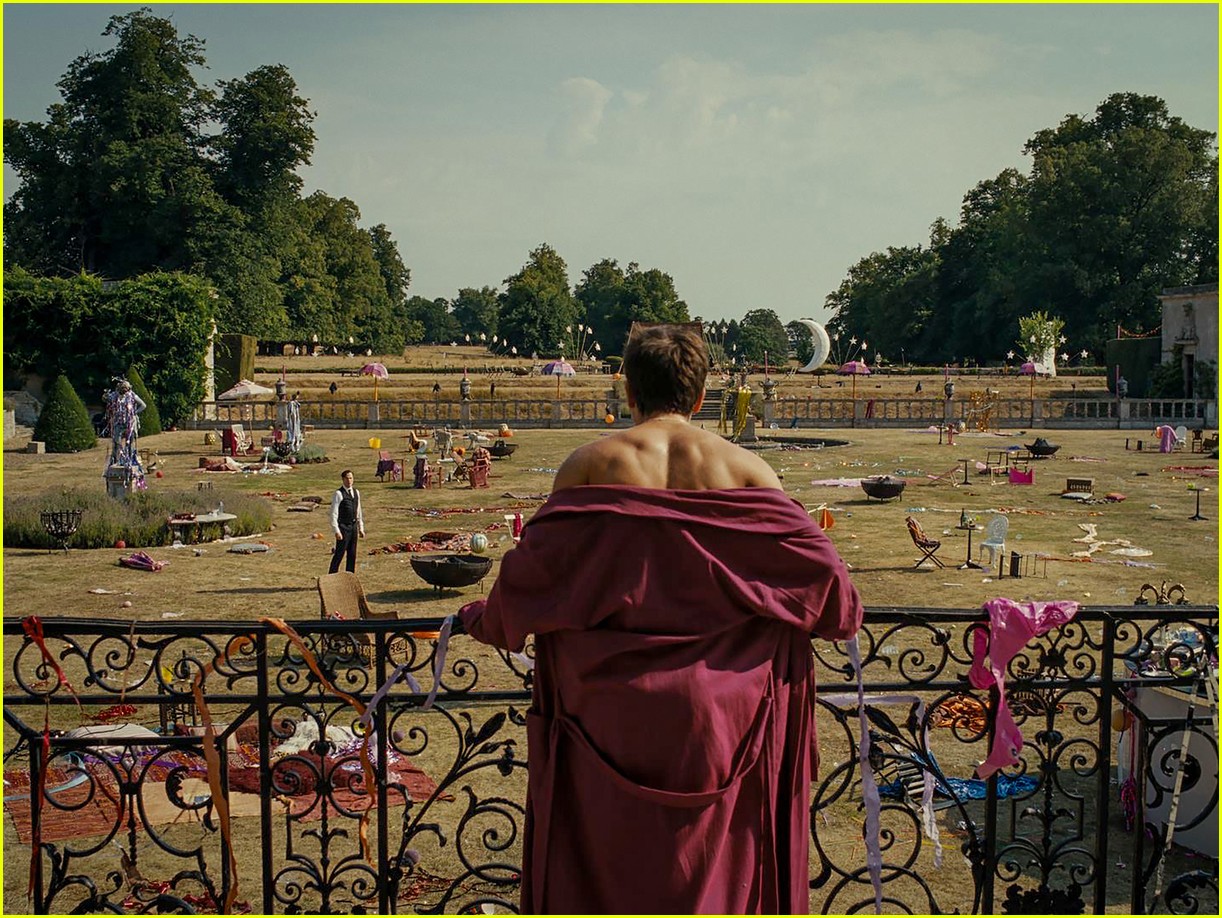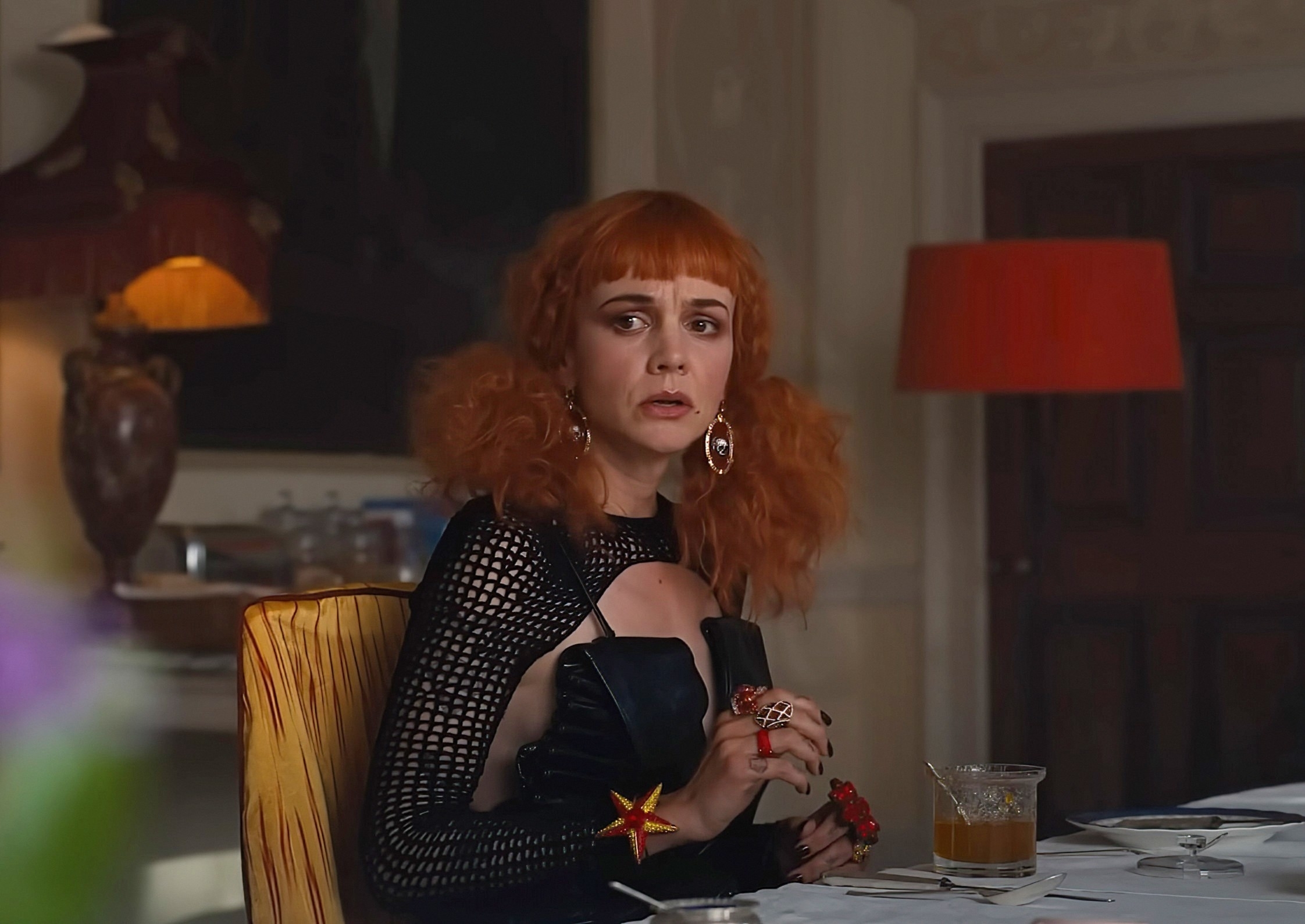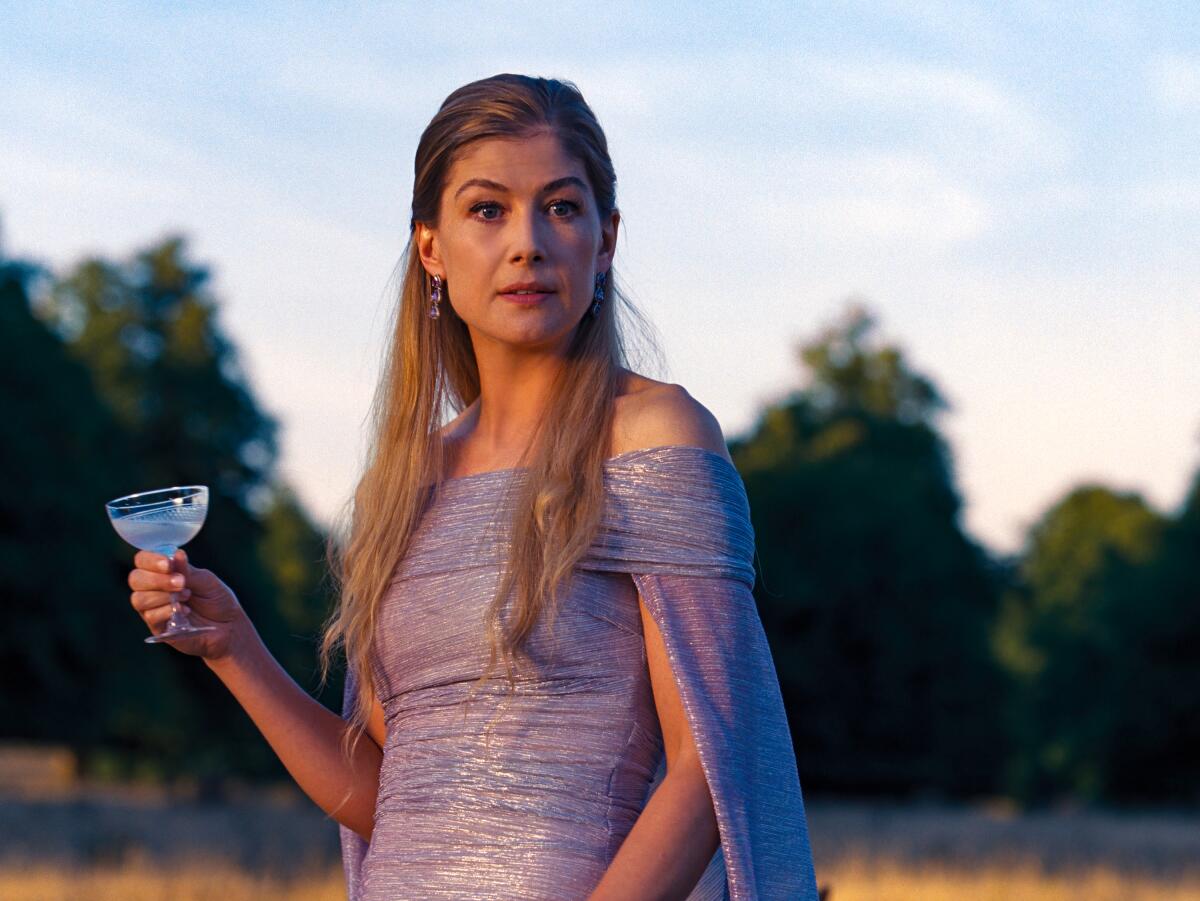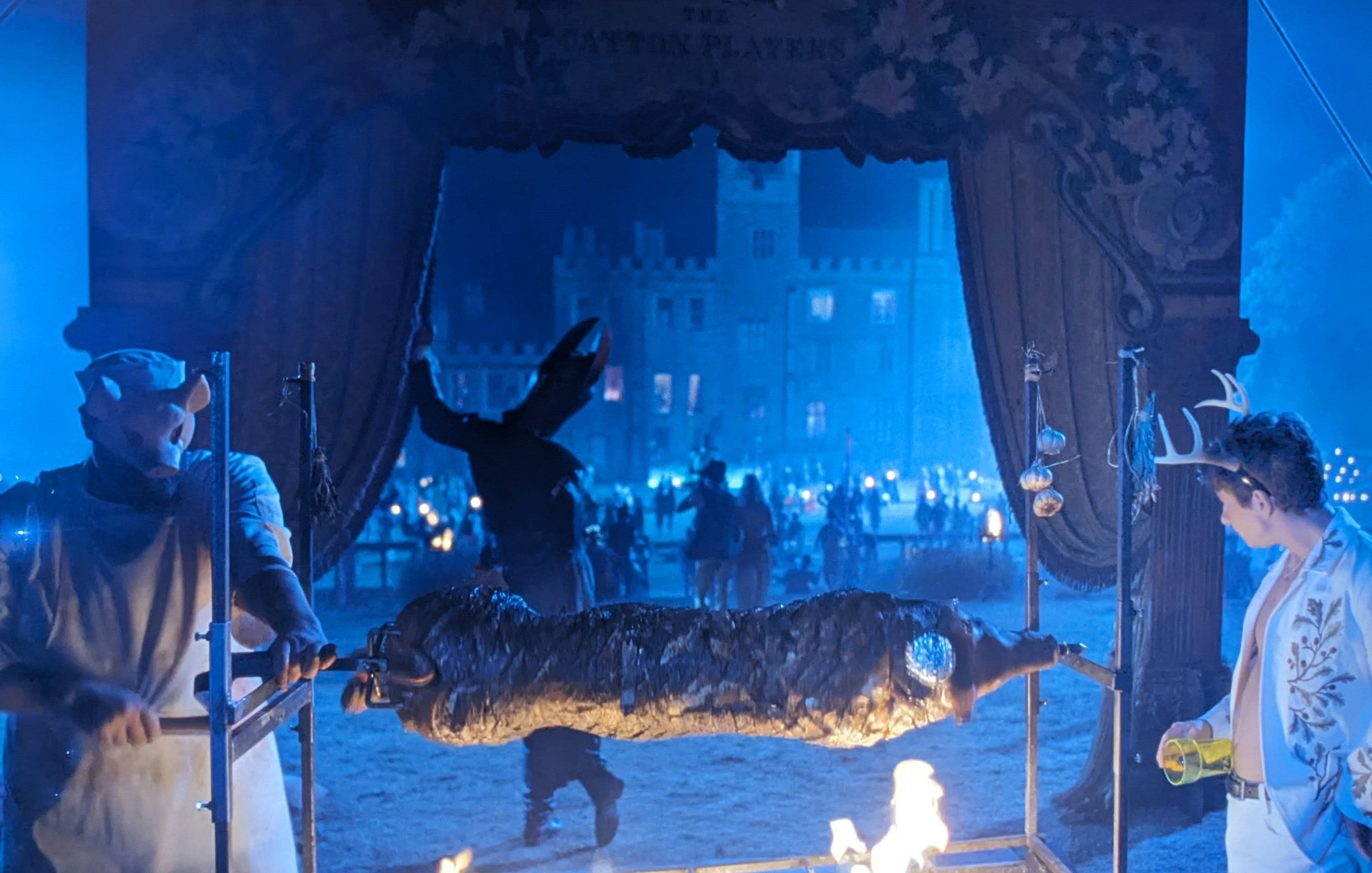Saltburn:
so close to satisfaction

Spoiler-Free:
I really wanted to love Saltburn - Emerald Fennell's sophomore feature after 2020's phenomenal Promising Young Woman. And I almost did. The cinematography, production design, and acting were stellar. The story was interesting, if not entirely original (many comparisons to The Talented Mr. Ripley have already been made). Still, it was done in a different style from Ripley, and there was something bracingly unique about Saltburn. The entire cast inhabited their characters flawlessly. Barry Keoghan made an iconic impression, leaving me still unable to nail down how much I actually enjoy watching Keoghan on screen (and I suppose this enigmaticness works in Keoghan's favor).
While Saltburn is... weird? Tragic? Gross? Intentionally over-the-top? It is also quite funny. Carey Mulligan's turn as Poor Dear Pamela was criminally short. Rosamund Pike - although not altogether different from what one generally gets from Rosamund Pike - delivered several lines that stayed with me for their sheer, honest, absurdity. Paul Rhys's turns as the butler, Duncan, felt much better suited to a character in a horror film, but in the perfect way. Farleigh (Archie Madekwe) is consistently hatable yet irresistible to watch. Even minor characters stand out, like Reese Shearsmith's professor, who plays antipathy and obsequiousness to a tee. The one person in Saltburn not attempting to draw closer to the elites, Ewan Mitchell's maths-hating mathematician, served a Bo Burnham-esque dorkiness but with more depth and honesty to his pathological normalcy (and malignant chocolate consumption methods). It is a true testament to a film's quality when so many minor characters leave such indellible impacts.

While some have made misguided claims that Saltburn is a critique of the middle class, it really seems to be more of a critique of class in general. Every character (save for the aforementioned mathematician) is obsessed with those on a different station from their own. The difference is that those ranging from middle class to lower-upper class express more of a longing to be near the importance, power, and privilege of the uber-wealthy, while the obsession held by the wealthy is much more crass, cruel, condescending, and degrading. Everyone wants to get close to Felix (Jacob Elordi) because of his sheen, but the wealthy entertain themselves by feeding on the tragic lives and stories of those less privileged than themselves (those the could easily help in meaningful ways if they so chose). It's made clear that even family member Farleigh - toeing the line between hanger-on and upper-class - is made to continue soliciting for support from his wealthy family members.
The beneficence they are often so keen to show, they are sure to limit to the temporary, and only as long as their interest remains sufficiently piqued, their egos sufficiently buoyed. It makes sense for people with less access, less opportunity, and greater struggles to be intrigued by those lacking such limitations, but it is far more repugnant for those living in castles to be enamored with the pitiable lives of those they stand above.

Spoiler-Full:
While Felix could be viewed as entirely the victim, it is also easy to see that his view of himself and others is no better than his mother's. He is visibly embarrassed by her crass behavior and apologizes for her rude questions, but he doesn't seem to see anything wrong with the attitudes underlying them. Felix simply knows how to be socially appropriate and charming. This is on display throughout the film - in the way that Felix is drawn to Oliver (and his ability to be Oliver's benefactor), in the way Felix has had "pet poors" in the past, in how drawn he is to Oliver's supposed lower-class struggles, as well as in his reaction to discovering Oliver's true station. While it is understandable to find huge lies from a friend intolerable, one can't help but wonder how much of Felix's anger at that revelation is due to the fact that Oliver is not who Felix wanted him to be. Oliver wasn't *actually* a pitiful pet he had been saving through his generous friendship. Even the simple fact that Felix chose not to let Oliver know that they wear suits to dinner - leaving him no option but to be dependent on Felix's generosity - speaks to what Felix really gets out of the relationship.
None of the wealthy characters seem entirely happy with what they have (save for tragic Felix - as long as he has a pet project). On re-watch, it is odd that this family with the ability to do literally anything chooses to spend their time watching movies about middle class people, sitting uncomfortably in brown fields of thistles, and lying with their hair dangling into pond scum.

Ultimately, Felix's family and Oliver are equally voyeuristic. Both stare into each other's windows. What makes Oliver stand apart (aside from a penchant for murder), is that he is the only character who truly loathes the middle class.
Much has also been made of Saltburn's gross moments, and while I am not a fan of being shocking for shock's sake, those scenes do serve metaphorical purpose. As Venicia brutally lays out in her last scene, Oliver "ate Felix up and licked the plate." He was doing this with the family as a whole, it seems, Venicia included. What would have lent this metaphor more solidity would be if he had included Felix's parents in some physical manner as well, as he does end up "consuming" the entire family - or at least their possessions. It remains true, however, that these scenes could have been shorter, less unpleasant to watch, and maintained their overall effect.

One point in the film that doesn't check out is when Oliver sabotages his friendship with Felix while still at university. On a hot day in the dorm he consistently pushes Felix's buttons in a way inconducive to his overarching scheme. Perhaps he was angry about Felix sleeping with the girl who had been insulting Oliver the night before, but for someone as scheming as Oliver, such an unproductive action doesn't jive with the rest of his choices in the film.
And there are two points at which truly Saltburn falls short. One is that the film really waffles on Oliver's motivation. Did he truly want a friend? Much is made of his longstanding struggle to make friends and his desire to keep Felix as a friend. He did seem genuinely distraught at Felix's death - trying to prevent it in a last-ditch speech in the labyrinth - even though Felix's death did nothing to hinder (actually helping) Oliver's outcome. But by the end of the film he seems not to care at all about any of the deaths - gleefully dancing around the "death stones" of each member of the family (stones he would have had to painstakingly locate) and around the dancing puppet box. The final scene implies that this had been his goal all along. So which is it? Did Oliver want a friend, or was he always a violent, money-seeking, sociopath. It really can't be both, and the film seems not to know which is true, which is a bit unforgivable, considering that this point is the crux of the film and its twist.

This brings me to Saltburn's most egregious offense. When the montage near the end of the film began, I at first felt excited. A well-executed twist is satisfying, indeed. But after the initial shot of Oliver letting the air out of Felix's tires, every other "twist" explained by the montage was painfully obvious - even if someone hadn't been paying much attention to the film. Fennell really had two options: don't make Oliver's actions obvious throughout the film, or skip the montage entirely. Overall, Saltburn could have received a full extra star with some additional editing and by avoiding patronization. Fennell committed one of the greatest sins in storytelling: don't overexplain; don't talk down to your audience. Because we really are right there with you. We're on the same level.


